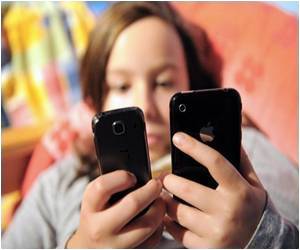
Twitter users regularly recount the loopy messages they've sent with the hashtag #sleeptexting. "There are texts sent from my phone at 5am that I do not recall sending," said one tweet. Another said, "I should stop sleeping next to my phone."
Others post Twitpics and Instagram photos showing their bizarre or garbled messages, some of which are more gibberish than actual words.
Whereas some people might "get up and go get something out of the refrigerator" while in a state of sleep, others "grab their smartphone, which is right next to them, and they may text or do other things," Dr. Jim Fulop, the corporate medical director for OhioHealth Sleep Services said.
The idea of unlocking a smartphone, opening a texting app and then typing something while asleep may sound far-fetched, but the "sleep-texting" term is a little misleading.
It's more like "half-asleep" texting, as doctors describe it as a state of rest where a person isn't fully awake.
Advertisement
"Think about the rate at which people are texting nowadays, and most people sleep right next to (their phones), so if they wake up it's another automatic behavior. ... This is sort of a form of sleepwalking, that's kind of the way that I look at it," she said.
Advertisement
Fulop and Harris said that younger generations appear to be more susceptible to sleep-texting.
For young professionals, sometimes their jobs require them to respond to texts and e-mails late into the night.
And teens, "they're texting constantly," Fulop said.
Adults can typically shrug off sleep-texting with a laugh or an apology, but there could be greater consequences for adolescents.
Texting is interrupting their sleep at an age when they need it most, and they could be more vulnerable to their unintentional over sharing being posted for others to see.
If you're a sleep texter or afraid of becoming one, the easiest and best solutions are the most obvious - turn off your phone, set your passcode lock or place it on the other side of the room so it's not within easy reach.
Source-ANI








